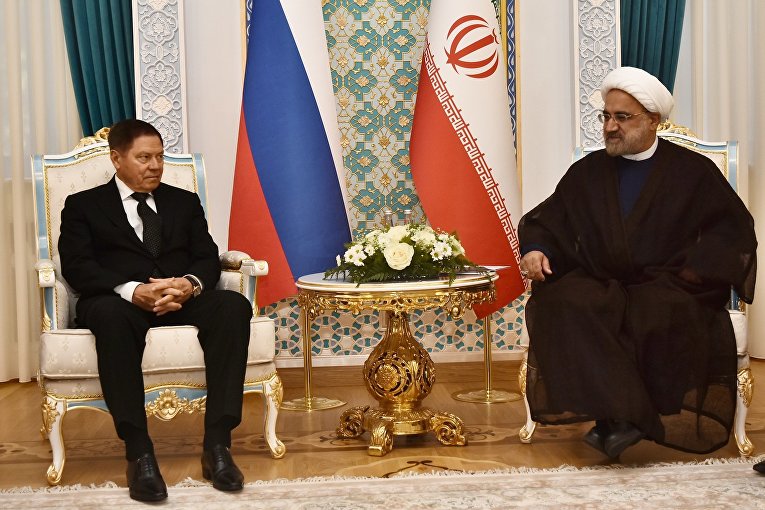MOSCOW, August 18 (RAPSI) — Russia's Supreme Court Chairman Vyacheslav Lebedev and First Deputy Head of Iran’s Judiciary Mohammad Mosaddeq have reached an agreement on cooperation and mutual assistance with the digital transformation of the legal systems of both countries.
At a meeting at the state residence of the President of Tajikistan, Lebedev and Mosaddeq also agreed to share their best practices and organize mutual working visits of personnel.
Mosaddeq invited Lebedev to visit Tehran. Lebedev, in turn, responded with an invitation for Mossaddeq to celebrate the 100th anniversary of the Supreme Court of the Russian Federation.
The First Deputy Head of Iran’s Judiciary said that he was pleased with the outcome of the meeting as to the fruitful development of relations between the countries and expressed his readiness to make every possible effort to continue the cooperation.
Iran is expected to become a member of the Shanghai Cooperation Organization (SCO) after the summit in Samarkand in September. The SCO groups Russia, China, Tajikistan, Uzbekistan, Kyrgyzstan and Kazakhstan. Iran has observer status so far.
Development of digitalization
This May, Lebedev stressed the demand for Russian electronic justice services, which, according to him, had proven their indispensability during the pandemic and noted that the growth was continuing. According to the Russian Supreme Court Chairman, national courts registered 31% more e-claims than in 2021.
Digitalization of judicial services will expand in the future, Lebedev pointed out, as this development is not only convenient for citizens, but also cost-efficient for the state, given the fact that only last year the Russian judicial system spent nearly 8 billion rubles (about $130 million at the current exchange rate) on paper mail.
Most measures taken on the national level for the development of electronic document flow in legal proceedings implement two important tasks at once: increasing the accessibility of justice for citizens, on the one hand, and reducing the burden on the judicial system, on the other.



